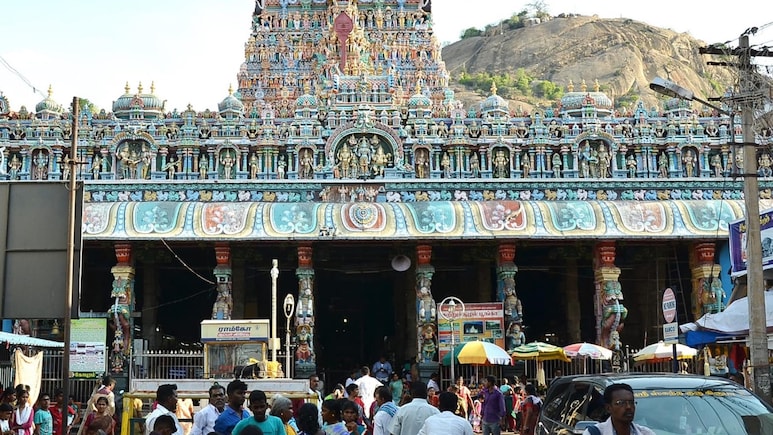
The Madurai Bench of the Madras High Court has delivered its third-judge ruling on the Thiruparankundram Hillock dispute, settling the split verdict delivered in June this year. Justice GR Vijayakumar, the third judge nominated to decide the matter, largely concurred with the views of Justice S Srimathy, affirming that the name of the hillock shall remain Thiruparankundram Hill and not Sikkandar Malai.
The judgment resolves three contentious issues - the name of the hillock, the practice of animal sacrifice at the Sikkandar Badusha Dargah, and the right of Muslims to offer prayers at the Nellithoppu area.
Name To Remain "Thiruparankundram Hill"
Justice Vijayakumar noted that revenue and archaeological records, including a 1908 and a 1923 Gazette notification under the Ancient Monuments Preservation Act, identify the area as Thiruparankundram Rock. The notifications declare 172.2 acres of the hill as protected monuments under the Archaeological Survey of India (ASI). Citing these records and the 1920 civil court decree, the judge held that referring to the hill as Sikkandar Malai was "mischievous" and amounted to an attempt to alter its historical name.
The judge also observed that Arulmigu Subramaniaswamy Temple at the foothills is the owner of the entire Thiruparankundram Hill except for two portions - the Sikkandar Badhusha Avuliya Dargah at the southern peak and the Nellithoppu area midway - which earlier civil court decrees had recognised as belonging to the Mohammedans. The Dargah and Nellithoppu areas together form only a small part of the 172-acre hill, with Nellithoppu itself measuring about 33 cents.
Ban On Animal Sacrifice Until Civil Court Ruling
Justice Vijayakumar ruled that no animal sacrifice can be permitted on the hillock, citing that there was no documentary proof showing animal sacrifice as a long-standing or essential religious practice at the Dargah. The court held that even if the dargah administration claims animal sacrifice as a religious custom, it must establish this before a competent civil court. Until such a decision is made, no animal sacrifice, cooking, or serving of non-vegetarian food would be allowed anywhere on the hill.
Limited Right To Offer Prayers At Nellithoppu
On the third issue, the court permitted Muslims to offer prayers in the Nellithoppu area during Ramzan and Bakrid alone, subject to strict conditions. The court clarified that while the 33-cent Nellithoppu area belongs to the Muslim community, the traditional footsteps leading up to it belong to the temple. These steps, which also lead to the Kasi Vishwanathar Temple atop the hill, must not be obstructed or defiled.
The order also made clear that no cooking, animal sacrifice or carrying of non-vegetarian food would be permitted at Nellithoppu until the civil court settles the rights of the parties.
"There are no permanent structures in Nellithoppu, and any large gatherings could disrupt access to temple devotees," the judge observed, directing officials to ensure peace and adherence to the court's directions.
Track Latest News Live on NDTV.com and get news updates from India and around the world

